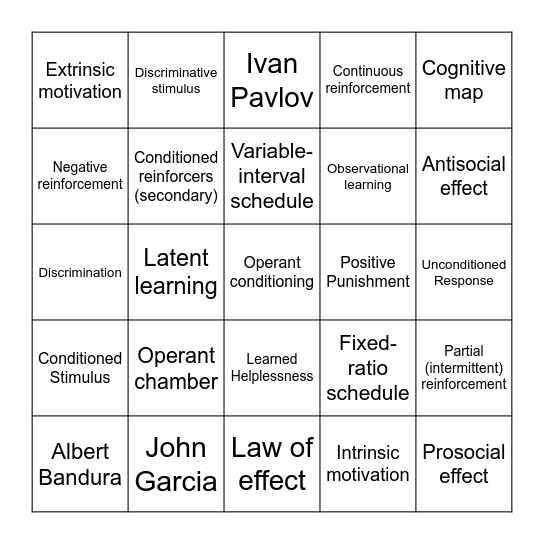

This bingo card has 51 words: Respondent behavior, Operant conditioning, Operant behavior, Law of effect, Operant chamber, Shaping, Discriminative stimulus, Positive reinforcement, Negative reinforcement, Primary reinforcers, Conditioned reinforcers (secondary), Continuous reinforcement, Partial (intermittent) reinforcement, Fixed-ratio schedule, Variable-ratio schedule, Fixed-interval schedule, Variable-interval schedule, Positive Punishment, Negative Punishment, Cognitive map, Latent learning, Intrinsic motivation, Extrinsic motivation, Observational learning, Modeling, Prosocial effect, Antisocial effect, Mirror neurons, Albert Bandura, Ivan Pavlov, Robert Rescorla, B.F. Skinner, Edward Thorndike, Edward Tolman, John B. Watson, John Garcia, Habituates, Associative Learning, Classical Conditioning, Unconditioned Stimulus, Unconditioned Response, Conditioned Stimulus, Conditioned Response, Acquisition, Extinction, Generalization, Discrimination, Spontaneous Recovery, Higher-Order conditioning, Learned Helplessness and Taste Aversion.
Learning Vocab Bingo | Learning Review | Behavioral Views of Learning- Board 4 | Learning | Chapter 6 - Learning
Share this URL with your players:
For more control of your online game, create a clone of this card first.
Learn how to conduct a bingo game.
With players vying for a you'll have to call about __ items before someone wins. There's a __% chance that a lucky player would win after calling __ items.
Tip: If you want your game to last longer (on average), add more unique words/images to it.